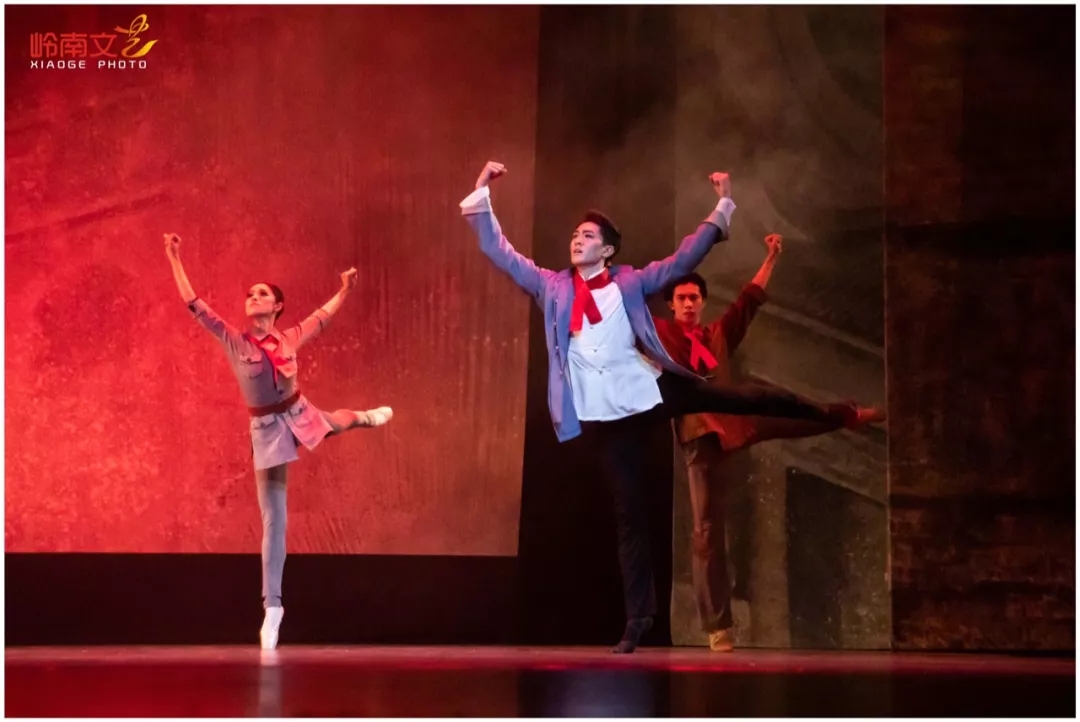Chen Tiejun

Chen Tiejun
浩然铁军
Ballet in four acts
World premiere in June 2019 at Guangzhou Opera House, Guangzhou
By The Guangzhou Ballet
Producer: Zou Gang
Artistic director, chief director: Zou Gang
Executive director: Shu Qin
Choreography: Shu Qin, Wang Lie
Art consultant: Wang Lie
Set designer: Han Jiang
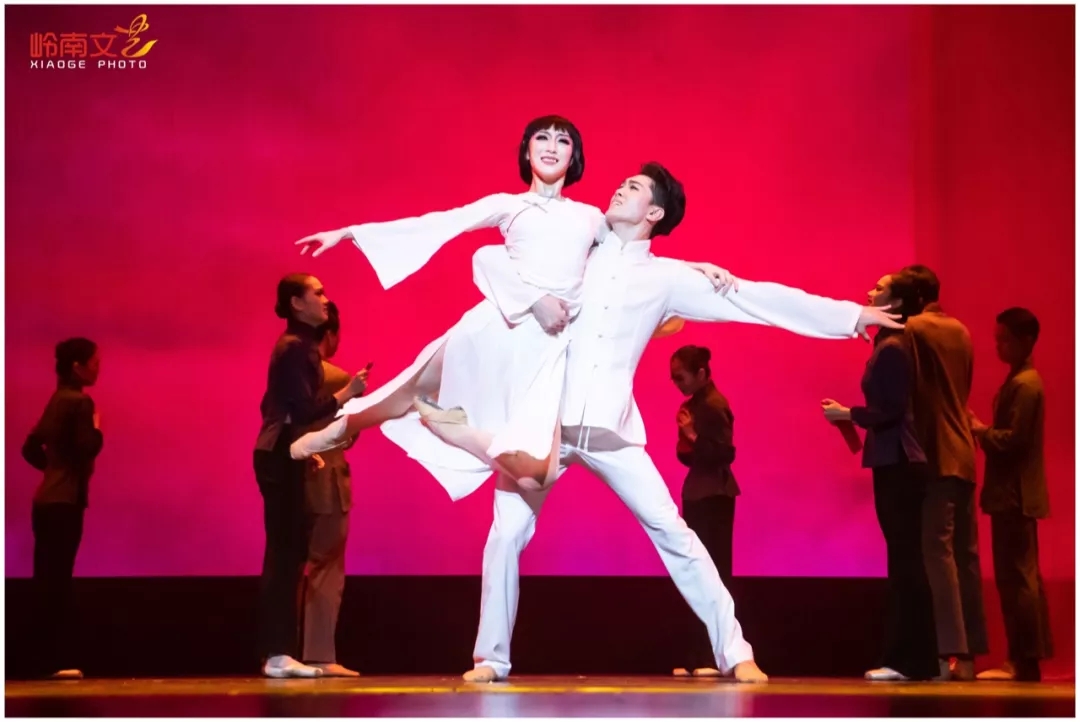
The libretto of Chen Tiejun is based on the real-life account of Wedding on the Execution Ground, which records the heartfelt romance between Zhou Wenyong (1905-28) and Chen Tiejun (1904-28), forerunners of the Communist Party of China who were active during the 1920s. After the collapse of the Guangzhou Uprising, they were arrested by the Kuomintang government. On the execution ground, Zhou and Chen deliberately held their wedding before their deaths, striking an extraordinary chord of revolutionary romanticism. A movie sharing the same title also created a vivid depiction of the two heroic figures.
This four-act ballet focuses on the life of the titular Chen Tiejun, and her internal journey of becoming a revolutionary warrior. Starting with a flash forward to the execution ground, the prelude displays the last embrace between Zhou and Chen with the light turning red, implying their sacrifice.
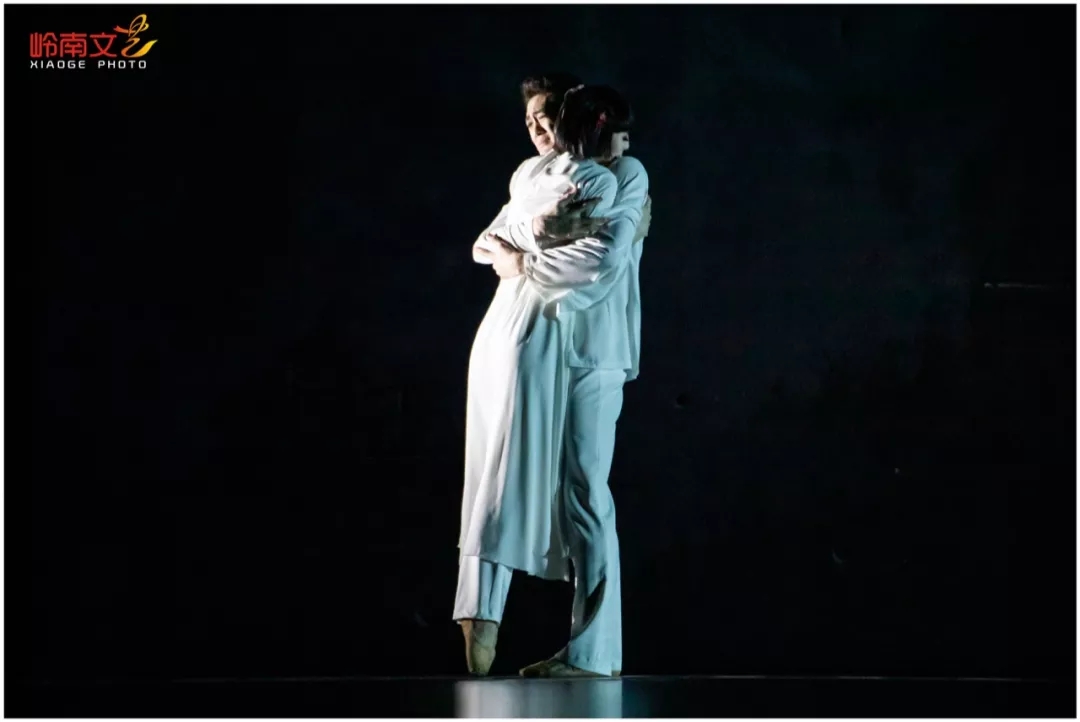
Titled The Rebellious Girl, the first act narrates how Chen decides to devote herself to the revolution. Daughter of a wealthy merchant in Guangdong province, Chen is forced to accept an arranged marriage to please her family. Soon realizing her incompatibility with that life, she resolutely leaves home, together with her sister, to seek a brighter future. The dance language of the heroine in this act presents a dramatic confrontational style, implying her great resolution and strong character.


Actively joining in the work of the Party, Chen starts a brand new life in the second act. When seeing Zhou Wenyong, her comrade, bravely entice the enemy to protect other people, she is deeply impressed and falls in love with him.
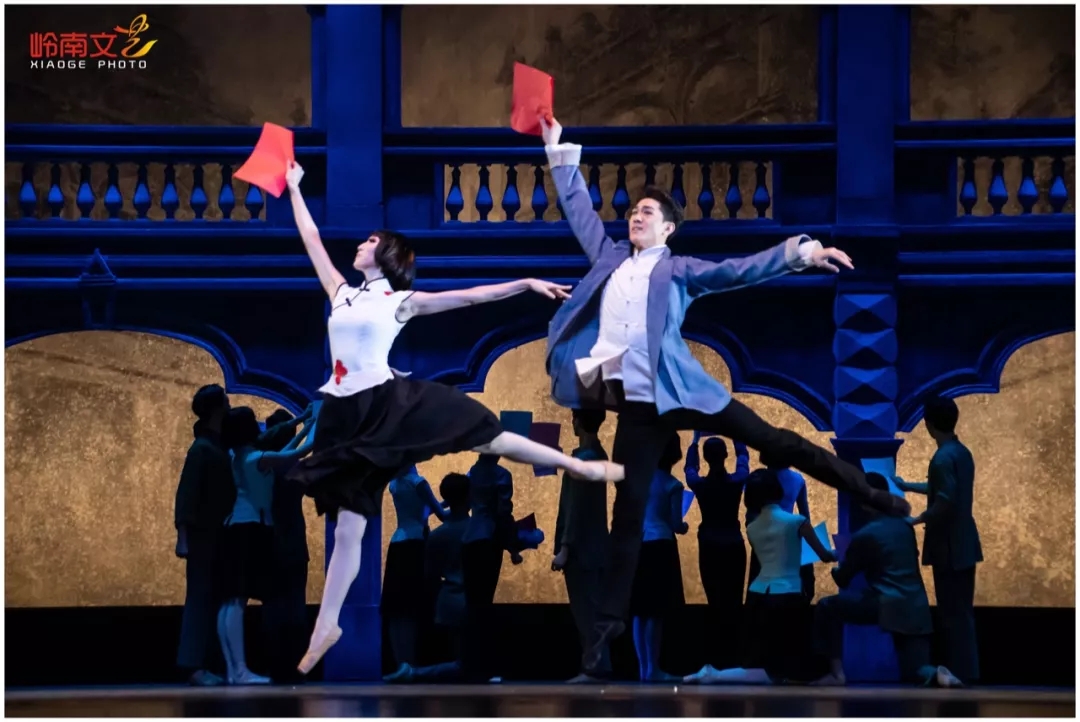
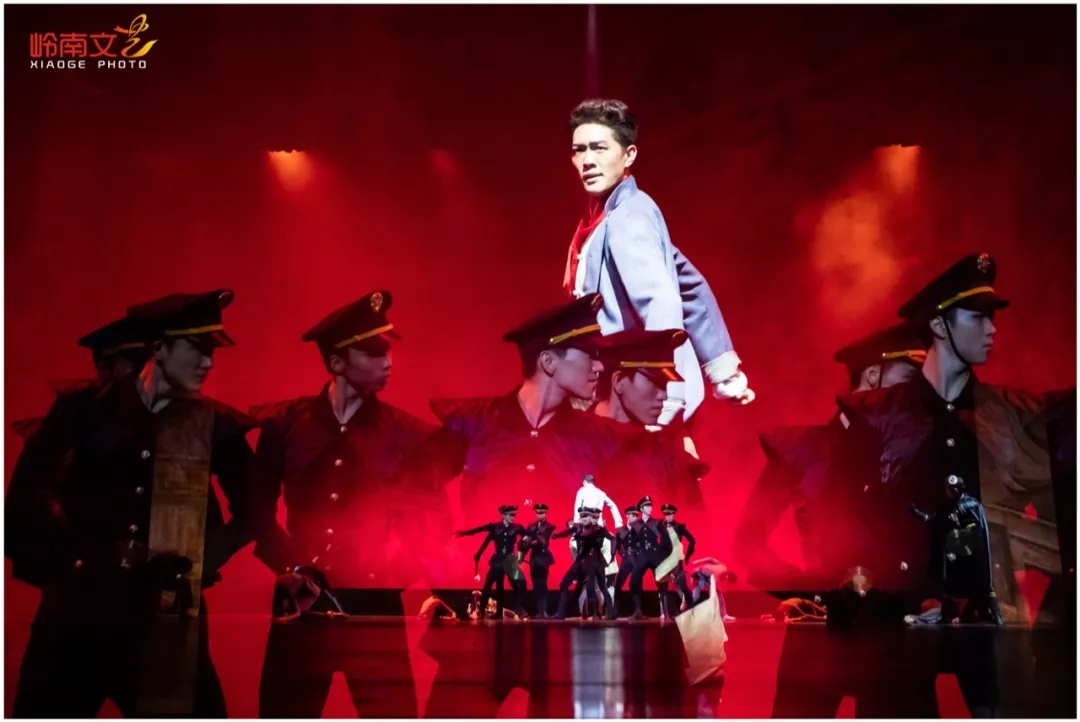
Under the arrangements of the Party organization, Chen joins in the successful rescue of Zhou in the third act, which increases the affection between them. They work as a couple in Guangzhou, supporting each other without fear or hesitation. However, betrayed by a traitor, Chen and Zhou are arrested by the Kuomintang government. In their final moment, as they bid each other farewell and take their one and only photograph, they look forward to the prospect of the revolution and stain the dawn of New China with the blood of their own demise.
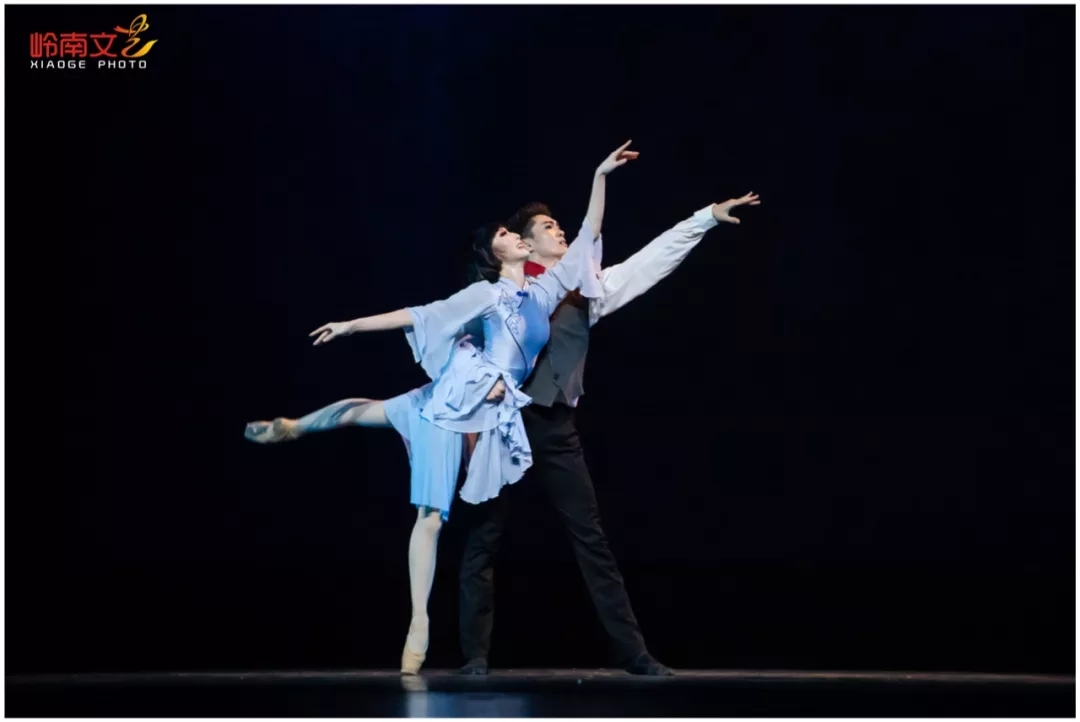

To offer a vivid interpretation of the story, the ballet adopts cultural elements from Guangdong, the hometown of the two characters. Folk dance, in particular, is greatly employed alongside the ballet. The laundry dance, the aoyu fish (a dragon-like fish from the ancient Chinese legend) dance, and the embroiderers’ dance all seek to illustrate local styles with the featured costumes. Qi lou (arcade house), a typical local architectural form, is also represented by the stage sets.
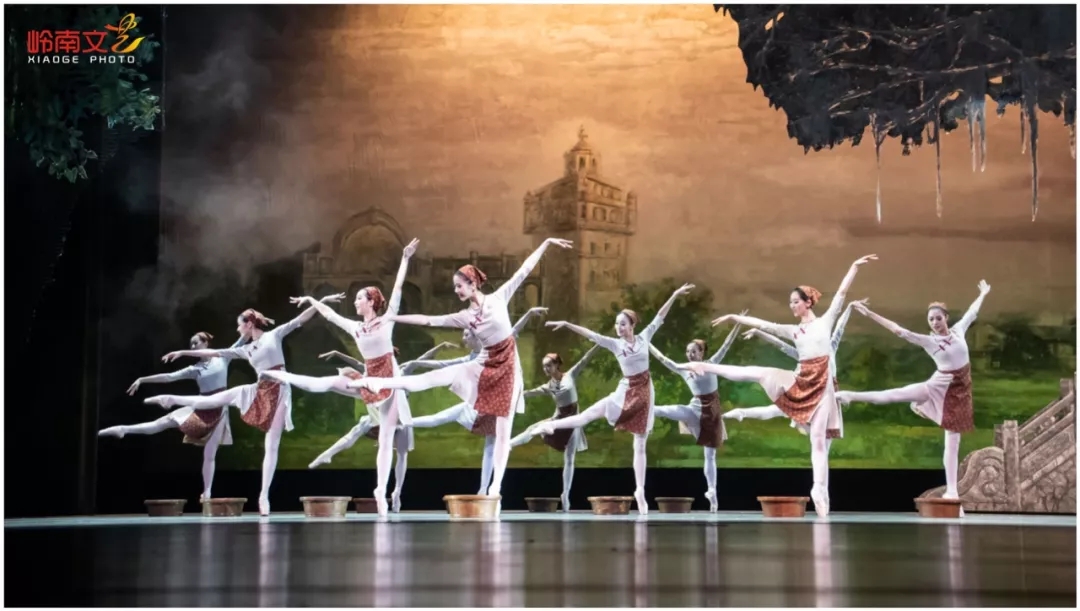

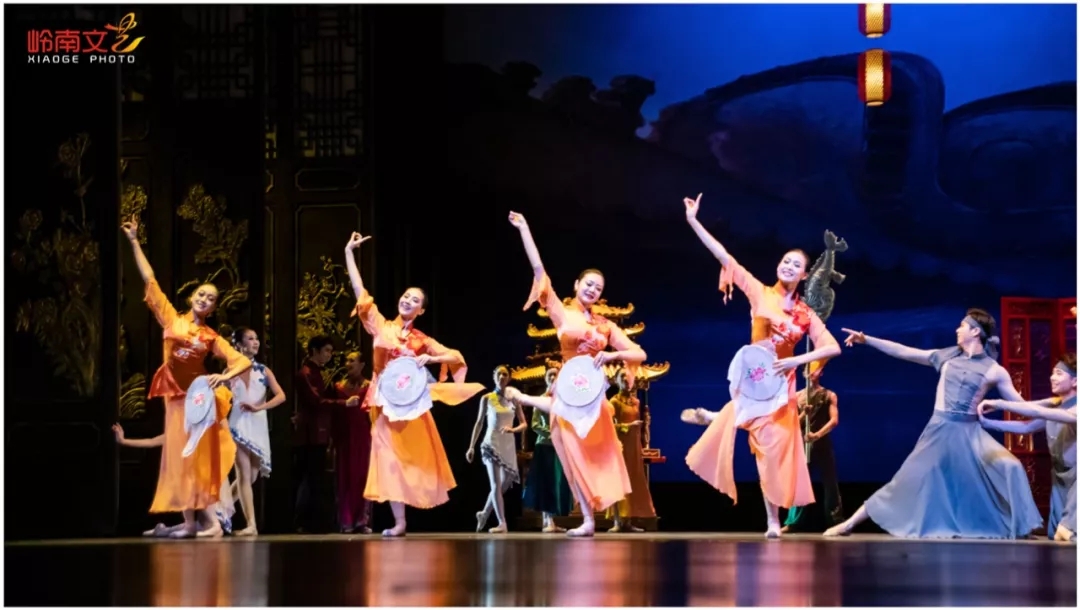
In order to appropriately represent the story, some typical ballet techniques are adjusted, including port de bras and upper body movements.
